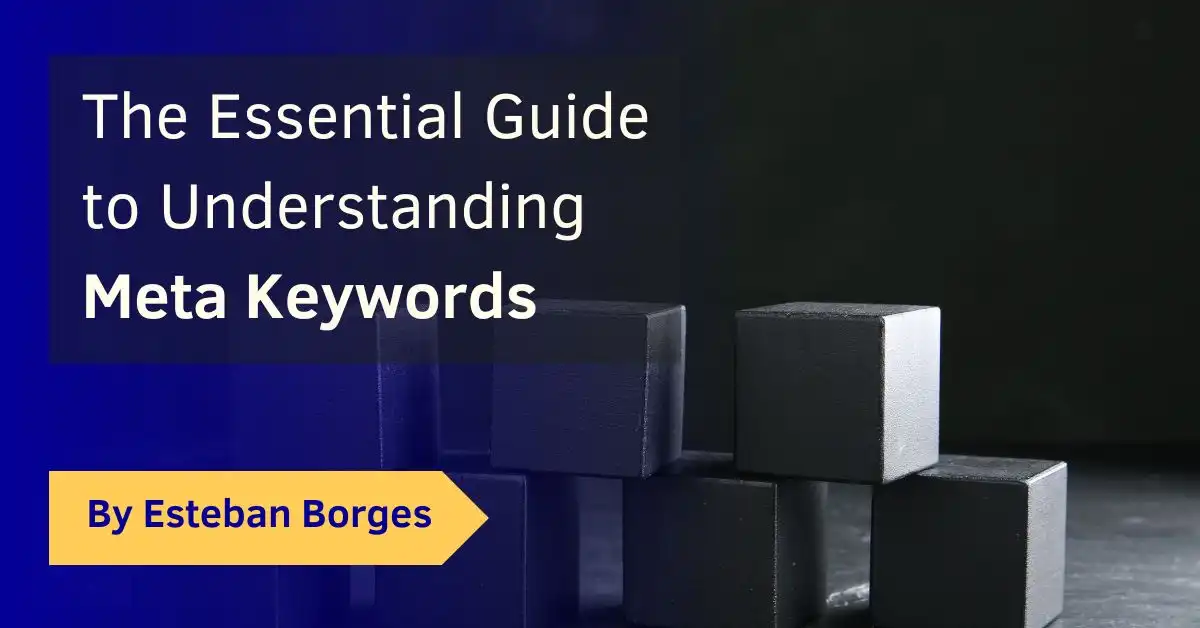When it comes to technical SEO, the significance of the meta title tag cannot be overstated. It’s a crucial element that often goes unnoticed but plays a vital role in a website’s performance and visibility. Let’s delve into the details.
Table of Contents
What is a Meta Title?
A meta title, often known as a title tag, is a critical HTML element that describes the content of a webpage. It’s typically the first thing people see on the search engine results page (SERP) when they search for a topic related to your webpage.
Essentially, it acts as the title of a book or a headline of a newspaper article, succinctly and accurately representing what the reader can expect from the content.
How do I create title meta tags in HTML?
Creating a meta title in HTML is simple. The meta title is enclosed within the <title> tags in the <head> section of an HTML document.
Here’s an example of a basic HTML code snippet for a meta title:
<!DOCTYPE html>
<html>
<head>
<title>Your Meta Title Goes Here</title>
</head>
<body>
<!-- Your webpage content goes here -->
</body>
</html>
How do you write a meta title?
Writing an effective meta title requires a thoughtful balance between SEO optimization and user-friendliness. For instance, if you own a bakery in New York, a good meta title could be something like this:
"Fresh Organic Bread | John's Bakery - New York"
This meta title is not only SEO-friendly but also attractive to potential customers browsing the search results.
What’s the ideal length of an HTML title tag?
The ideal length of a meta title is typically between 50-60 characters. Google usually displays the first 50–60 characters of a title tag. If you keep your titles under 60 characters, you can expect about 90% of your titles to display properly.
Are meta titles useful for SEO? Do I need a meta title?
Yes, absolutely! Meta titles are fundamental to SEO. Search engines use meta titles to understand the content of a webpage, which in turn influences your page’s ranking on the SERPs.
Not having a meta title or having a poorly optimized one can hurt your web page’s visibility, leading to fewer clicks and lower traffic. So, if you’re serious about improving your website’s SEO, you definitely need a well-crafted meta title.
What should be included in an SEO title?
A meta title should ideally include the following:
- Your primary keyword or phrase that describes the webpage content.
- Your brand name or website name.
- A compelling message or value proposition that entices users to click.
Title Tag Examples
Let’s explore a few meta-title examples that follow the best practices of being concise, clear, and relevant:
- For a Tech Blog: “Latest iPhone Review: Features & Analysis | TechGuru Blog”
- For an E-commerce Site: “Buy Organic Coffee Beans | Free Shipping | JavaMasters”
- For a Travel Agency: “Affordable Summer Vacations in Italy | ExploreWithUs Travel”
Each of these examples includes a primary keyword, a brand name, and a concise summary or enticing detail that aligns with what the user is likely looking for. They stick within the 50-60 character limit, ensuring that the entire title can be displayed in the SERPs.
Is the meta title the same as the SEO title?
Yes, the terms ‘meta title’ and ‘SEO title’ are often used interchangeably. Both refer to the HTML element that describes and summarizes the content of a webpage for the benefit of both users and search engines.
Does Google really use meta title tags? What’s the real impact of SERPs?
Yes, Google does use the meta title tag as one of the many factors in its ranking algorithm. The meta title appears in the SERPs, often forming the link that users click to visit your webpage.
An optimized meta title helps Google understand what your webpage is about, making it easier for it to rank your page for relevant queries. This directly impacts click-through rates (CTRs), traffic, and ultimately, conversions.
Localizing your meta titles
Let’s talk about adding a sprinkle of local flavor to your meta title. By slipping in some geographical cues, you’ll be reaching out directly to the folks in your area. That way, your page is more likely to show up when they’re searching. Got a business tied to a particular place? Go ahead and flaunt it. Here’s an example:
“Craving Authentic Pasta? Look no further than Mario’s Trattoria – Boston’s Favorite”
This one’s got the whole package: what you do (serve Italian food), who you are (Mario’s Trattoria), and where you’re at (Boston). Three birds, one stone!
The human side of titles
When cooking up a meta title, don’t just think about all the technical SEO stuff. You’ve got to remember you’re talking to real people. A top-notch meta title sparks curiosity, clears up any confusion, and zeroes in on what the searcher is hunting for.
One secret weapon is power words. These are the words that hit people in the feels and make them want to click. Check out the difference between “Cheap Vacations to Greece” and “Embark on Your Dream Greek Odyssey Without Emptying Your Wallet”.
Regular check-ups
Just like you’d regularly service your car, you’ve got to keep an eye on your meta titles. Use tools like Google Search Console to see how they’re doing in terms of views and clicks.
Think about A/B testing too. That’s where you test out two different versions of a title to see which one gets more love. It’s like a reality show for your meta titles. The one that gets the most votes, wins.
What to avoid
While we’re at it, let’s go over a few things you shouldn’t do when you’re making a meta title:
- Keyword overkill’s: Sure, keywords are important, but too many can look spammy. Stick to one or two.
- Forgetting Your Brand: Leaving your brand name out of the meta title is like forgetting to put your name on a test paper. You’re missing a chance to get it stuck in people’s minds.
- Ignoring What People Want: Make sure your meta title matches what your users are looking for. Always keep your audience in mind and your meta title clear and accurate.
- Not Checking Out the Competition: It’s always good to know what you’re up against. Check out the other titles that come up for your keywords. You might learn something, or spot a gap you can fill.
Meta Titles – Part of a Bigger Picture
Remember, meta titles are just one piece of the SEO puzzle. They’re part of a bigger family of meta tags (like meta descriptions and meta keywords) that work together to tell search engines all about your page.
Think of a meta description as the wingman to your meta title. It backs it up by giving a brief summary of your page and encouraging users to click through. And while meta keywords might not be the cool kids on Google’s block, other search engines still pay attention to them.
Conclusion
To sum up:
- Meta Titles are Essential HTML Elements: A meta title, or title tag, accurately describes the content of a webpage. It’s a crucial part of your website’s HTML.
- They’re Critical for SEO: Meta titles play a significant role in how search engines like Google understand and rank your page.
- Include Key Elements in Meta Titles: A well-optimized meta title should include your primary keyword, your brand name, and a compelling message or value proposition.
- Keep Meta Titles Concise: The ideal length for a meta title is between 50-60 characters to ensure it’s fully visible in search engine results.
- Meta Titles Influence Visibility and Traffic: Often referred to as SEO titles, meta titles can significantly impact a page’s visibility, click-through rates, and traffic.
- Human Appeal is Key: Meta titles need to be compelling for the readers who’ll be clicking on the links, not just optimized for search engines.
- Use Power Words: These emotive words can spark interest and prompt clicks.
- Localize If Relevant: If your business is location-specific, including local keywords can help attract the right audience.
- Monitor and Adjust: Regularly check how your meta titles are performing using tools like Google Search Console and make necessary adjustments based on these insights.
- Try A/B Testing: This technique can help you understand what works best for your audience and optimize accordingly.
- Avoid SEO Mistakes: Overstuffing keywords, excluding brand names, and ignoring user intent are some mistakes to avoid.
- SEO is a Long Game: Remember, effective SEO takes time. It’s an ongoing process that requires patience and persistence.
- Meta Titles are Part of a Larger Strategy: Meta titles are just one part of your overall SEO strategy. They work together with other meta tags to improve your site’s overall SEO.
Investing time in crafting well-thought-out and attractive meta titles can greatly enhance your website’s visibility, improve CTRs, and drive more traffic your way. Understanding and applying these insights about meta titles is a step in the right direction for optimizing your site for better performance and visibility in the SERPs.



